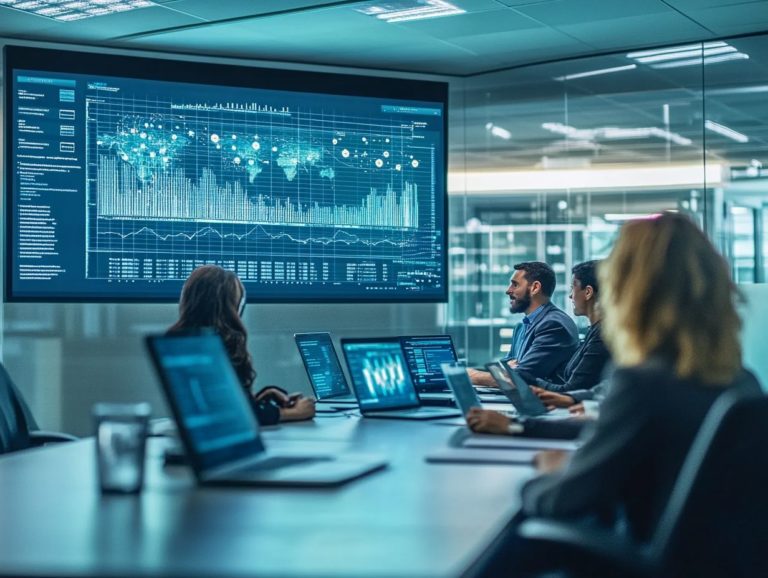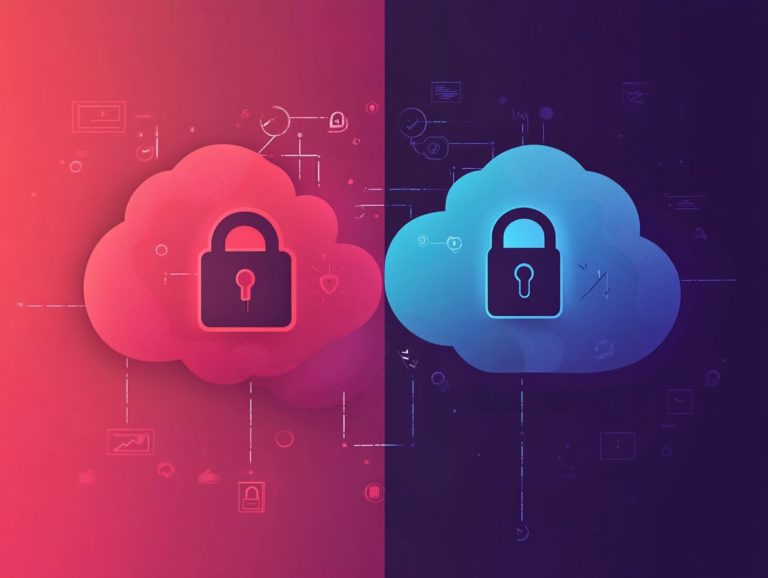5 features every managed security service should have
In today’s digital landscape, you encounter an ever-expanding array of cyber threats, highlighting the urgent need for strong security solutions that protect your business. Managed security services provide essential features that can effectively safeguard your organization from potential breaches.
This article delves into five key components of effective managed security services, including round-the-clock monitoring and customizable security plans. It also highlights the benefits these services offer, important factors to consider when choosing a provider, and the future trends shaping the industry.
Explore the insights within to discover how you can protect your business against evolving threats!
Contents
- Key Takeaways:
- 1. 24/7 Monitoring and Support
- 2. Regular Vulnerability Assessments
- 3. Real-Time Threat Detection and Response
- 4. Customizable Security Plans
- 5. Comprehensive Reporting and Analysis
- How Can Managed Security Services Benefit Businesses?
- What Are the Different Types of Managed Security Services?
- What Are the Key Factors to Consider When Choosing a Managed Security Service Provider?
- How Can Managed Security Services Help with Compliance?
- What Are the Common Challenges with Managed Security Services?
- What Are the Future Trends in Managed Security Services?
- Frequently Asked Questions
- What are the top 5 features every managed security service should have?
- How does proactive threat monitoring benefit a managed security service?
- Why is a strong response plan an important feature for a managed security service?
- What role does 24/7 customer support play in a managed security service?
- How do regular security updates and patches enhance a managed security service?
- Why are customizable security solutions crucial for a managed security service?
Key Takeaways:
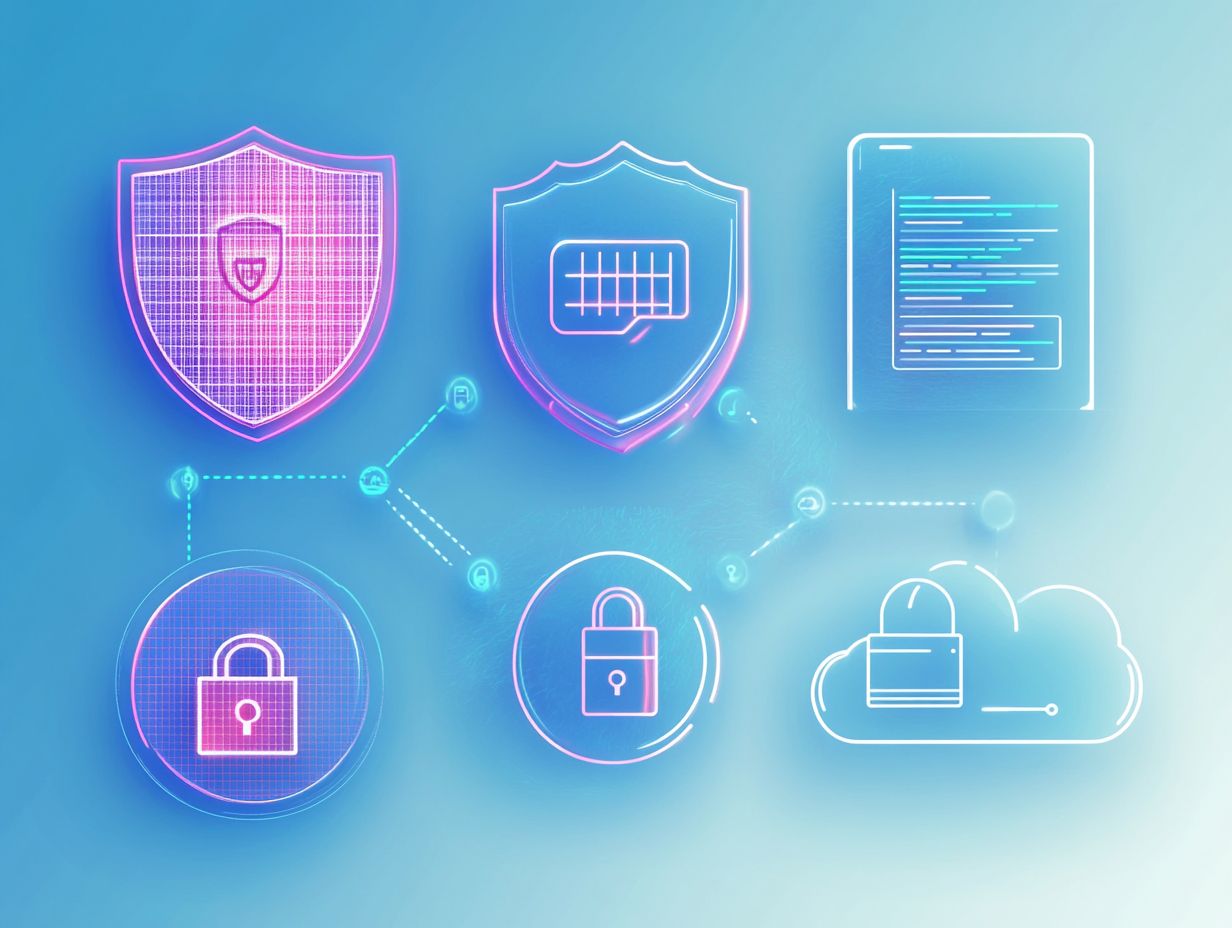
24/7 monitoring and support is a critical feature that every managed security service should have to ensure round-the-clock protection and immediate response to threats.
Regular vulnerability assessments are essential for identifying and addressing potential security risks, helping to prevent cyber attacks and data breaches.
Real-time threat detection and response is crucial for quickly identifying and mitigating potential security threats, minimizing damage and loss.
1. 24/7 Monitoring and Support
24/7 monitoring and support is an essential pillar of Managed Security Services, empowering you to effectively protect your digital assets against the constantly shifting landscape of cybersecurity threats. For more insights, consider exploring 5 reasons to invest in managed security services. This persistent oversight enables you to detect security incidents and respond promptly, thereby strengthening your security posture and ensuring compliance with industry standards.
Continuous monitoring serves as a robust mechanism for both threat detection and incident management, significantly reducing the potential impact of security breaches.
For example, real-time alerts from monitoring services allow you to address vulnerabilities before they can be exploited. Solutions like Intrusion Detection Systems (IDS), which monitor for suspicious activity, and Security Information and Event Management (SIEM) tools, which analyze security data, help you identify anomalies and assist you in analyzing the data.
By examining logs and other pertinent information, these services facilitate informed choices to mitigate risks. Ongoing assessments keep you ahead of compliance regulations, ensuring that security protocols are consistently upheld and fostering a culture of proactive security management.
2. Regular Vulnerability Assessments
Regular vulnerability assessments are crucial for identifying potential weaknesses in your organization s IT environment, ensuring that your security measures are strong and meet important standards.
These assessments involve a systematic evaluation of your networks, systems, and applications to uncover security flaws before they can be exploited by malicious actors. Cybersecurity experts use tools to check your systems and find security gaps, conduct penetration testing, and assess how well your existing security controls are working.
This continuous evaluation not only helps in mitigating risks but also assists your organization in meeting compliance requirements such as GDPR, HIPAA, and PCI-DSS.
The expertise of cybersecurity professionals is invaluable throughout this process, as they interpret findings, recommend remediation strategies, and ensure that you remain vigilant and prepared against potential threats.
3. Real-Time Threat Detection and Response
Real-time threat detection and response are essential elements of Managed Security Services, empowering you to swiftly counteract security breaches and minimize potential damage.
By harnessing advanced technologies like Intrusion Detection Systems (IDS) and Security Information and Event Management (SIEM) tools, your cybersecurity team can continuously monitor network traffic and analyze threat data. These systems are designed to spot anomalies and potential vulnerabilities in real time, enabling you to respond without delay.
Having a well-structured incident response plan is paramount; it clearly outlines the steps to take when a breach occurs, ensuring that your cybersecurity experts can effectively contain threats.
Proactive measures like regular updates and training strengthen your defenses, creating an environment of continuous security vigilance.
4. Customizable Security Plans
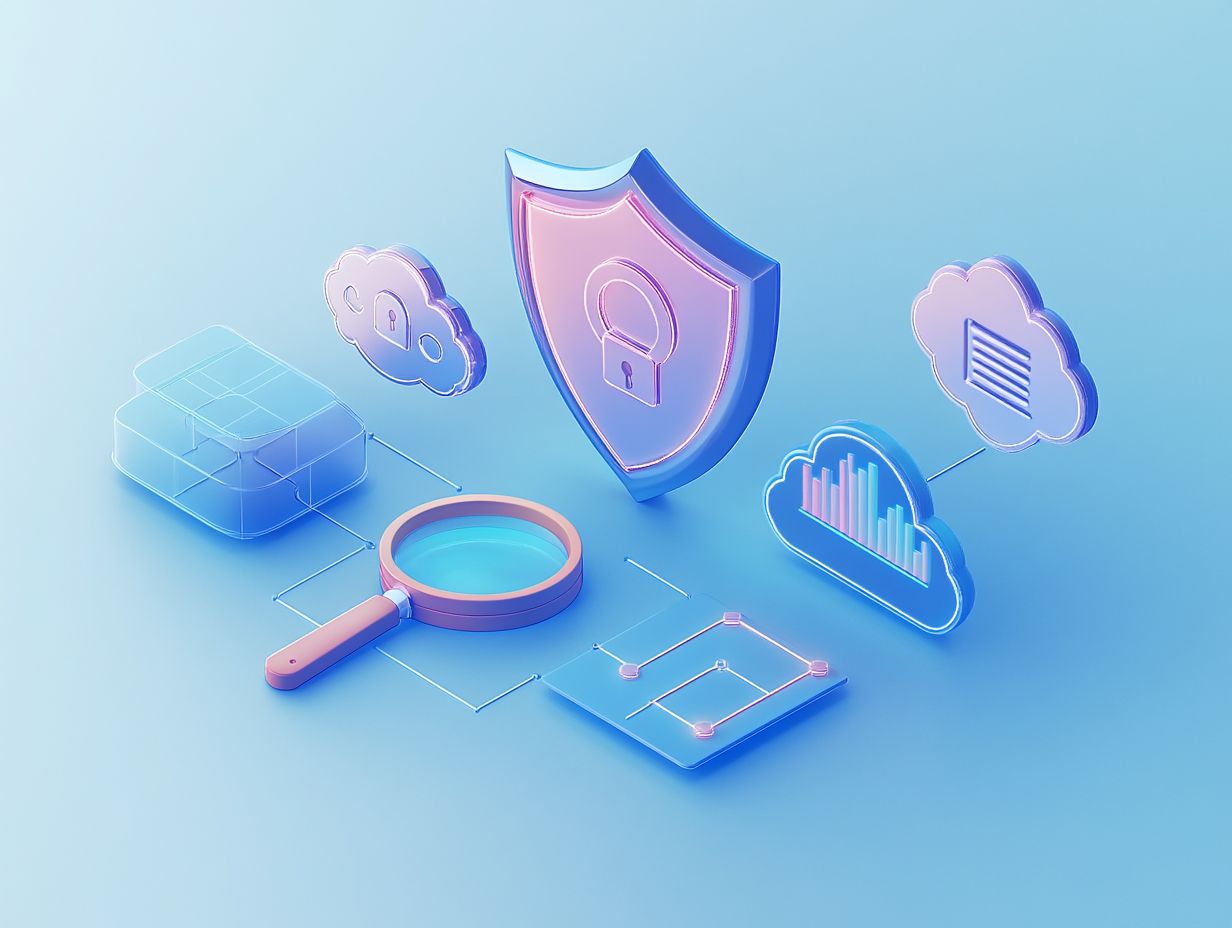
Customizable security plans are vital for Managed Security Services, allowing you to tailor your cybersecurity measures to fit your specific business needs and compliance requirements. Exploring 5 managed security services for tech companies can help enhance your approach.
These plans can flexibly evolve to adapt to various business environments and risk profiles. This ensures that you can develop a strategy that aligns seamlessly with your operational demands.
For instance, if you’re a healthcare provider, you might choose a service package that emphasizes data protection and regulatory compliance.
On the other hand, if you run a tech startup, your focus might shift toward innovative threat detection services to safeguard your intellectual property.
This level of adaptability not only enhances your security but also streamlines your resource allocation. Scalable services are a crucial element in today s constantly shifting IT landscape.
By utilizing tiered solutions, you gain the flexibility to adjust your security investments as your business grows. This allows you to navigate risks effectively without compromising on safety.
5. Comprehensive Reporting and Analysis
Comprehensive reporting and analysis are essential components of Managed Security Services. They offer you valuable insights into your cybersecurity posture and can highlight areas ripe for improvement, making it worthwhile to explore 5 managed security service packages to consider.
These reports typically feature detailed security assessments that evaluate weaknesses and risks within your organization s infrastructure, alongside audit findings that underscore compliance with regulatory standards.
When companies actively incorporate client feedback, they can refine their security measures.
Continuous monitoring facilitates real-time analysis, giving you the power to proactively tackle potential threats before they escalate into significant issues. This ongoing process not only fortifies your defenses but also cultivates a culture of vigilance and adaptability in the dynamic landscape of cybersecurity.
How Can Managed Security Services Benefit Businesses?
Managed Security Services bring incredible advantages to your business! They include heightened cybersecurity, customized solutions tailored to your unique needs, and robust risk management strategies that protect your digital assets while ensuring compliance with industry standards.
Imagine a mid-sized financial firm that recently embraced these services and successfully mitigated data breaches, significantly lowering their risk of facing hefty fines.
Don’t wait to protect your business! Instead of pouring resources into developing in-house capabilities, tap into these services to access state-of-the-art tools and expertise at a fraction of the expense.
Enhanced security measures, such as continuous monitoring and incident response, enable you to concentrate on your core operations while confidently safeguarding your critical information.
What Are the Different Types of Managed Security Services?
There are various types of Managed Security Services, each crafted to meet specific cybersecurity demands, such as vulnerability management, incident response, and endpoint security. For those looking to enhance their security measures, following these 5 tips for choosing managed security services is essential for establishing a robust IT security framework.
Not only do these services assist in identifying potential risks and responding to threats, but they also play a crucial role in ensuring continuous monitoring and adherence to regulatory requirements.
For example, vulnerability management hones in on weaknesses within systems, while incident response develops protocols to minimize damage following a breach. On another front, endpoint security, which protects devices like computers and smartphones connected to your network, guarantees that all devices are shielded from threats.
By choosing the right mix of these services, you can customize your security strategy to address the unique challenges your organization faces, ultimately building a resilient defense against cyber threats.
What Are the Key Factors to Consider When Choosing a Managed Security Service Provider?
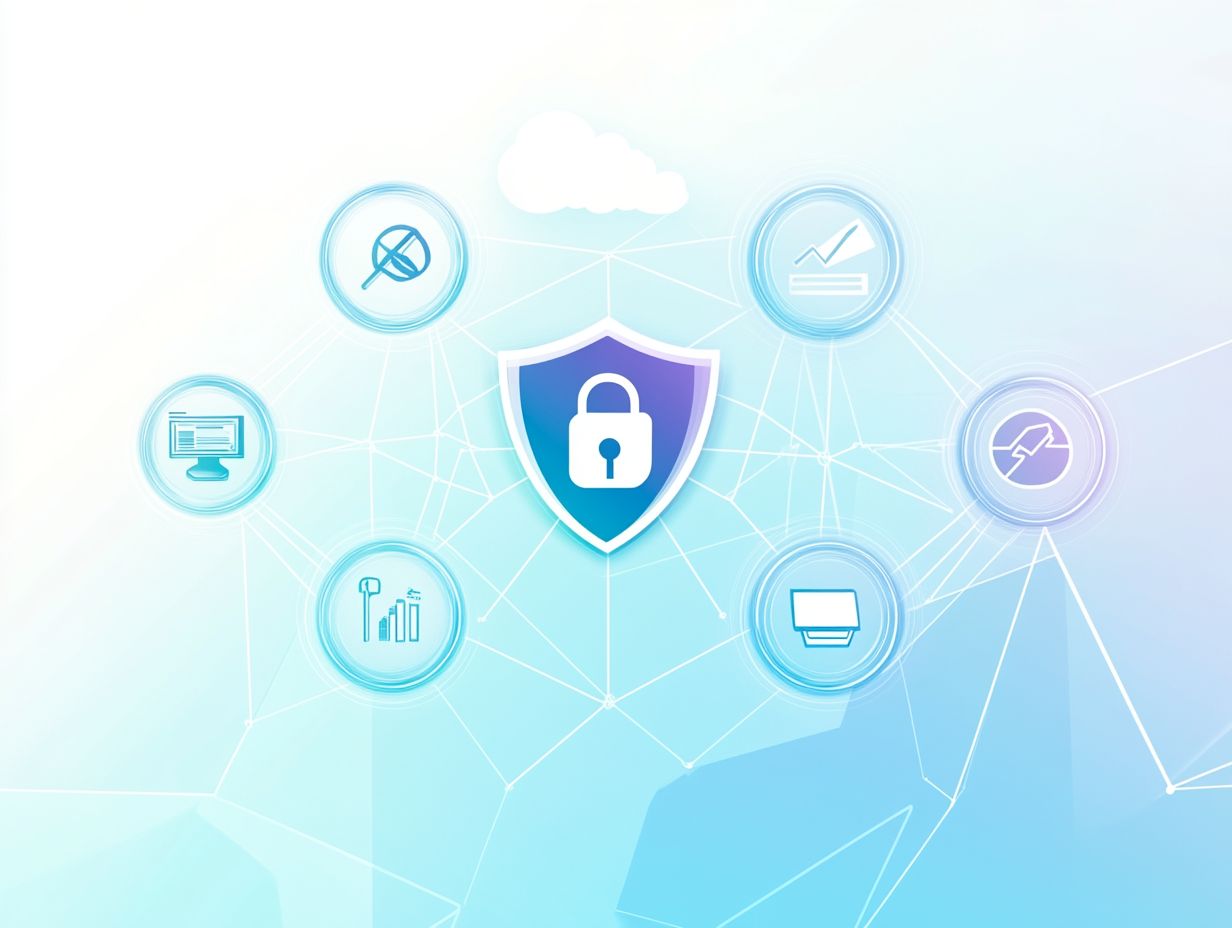
When selecting a Managed Security Service Provider (MSSP), consider several key factors:
- The provider’s expertise in cybersecurity
- The breadth of their security solutions
- Customer feedback regarding service reliability and effectiveness
Assessing their experience in the industry is essential. Their ability to tackle similar challenges and threats matters greatly.
A strong reputation, showcased through customer testimonials and industry accolades, offers valuable insights into their reliability and performance.
Understanding how well the MSSP can help with compliance requirements is crucial in highly regulated sectors. Aligning the MSSP s offerings with your organization’s risk management strategy ensures that both you and the provider are working toward the same security goals.
This collaborative approach enhances your overall protection and minimizes vulnerabilities effectively.
How Can Managed Security Services Help with Compliance?
Managed Security Services are essential for your organization to achieve compliance with various regulations like GDPR, HIPAA, and PCI DSS. These services ensure your data is continuously protected.
They offer tailored security measures that safeguard sensitive information and meet the intricate demands of compliance mandates. Regular audits conducted by seasoned professionals help you remain vigilant against potential vulnerabilities.
Regulations are constantly changing, and you need to stay ahead. The need for ongoing assessments and updates becomes critical.
By partnering with Managed Security Service Providers (MSSPs), you significantly reduce compliance risks. This allows you to manage legal requirements easily without compromising your operational integrity.
This proactive approach enables seamless integration of security into your daily practices, fostering a culture of compliance that is both dynamic and resilient.
What Are the Common Challenges with Managed Security Services?
Businesses often encounter challenges when utilizing Managed Security Services, despite the numerous benefits they offer. You might grapple with issues related to service packages and integration with your existing systems.
Don’t let challenges slow you down! Invest in training now to maximize your MSSP’s effectiveness.
Navigating service contracts can feel overwhelming. You have to sift through various terms and conditions that could affect service delivery.
The complexity of integrating Managed Security Service Providers (MSSPs) into your current IT infrastructure may lead to compatibility issues. This necessitates careful planning and evaluation on your part.
Foster open communication with MSSPs during the onboarding process. Regular check-ins and feedback loops will help ensure that the services evolve alongside your organization s security needs, ultimately boosting the effectiveness of your incident responses.
What Are the Future Trends in Managed Security Services?
The future of Managed Security Services is being shaped by emerging trends that highlight the critical importance of threat intelligence, scalable services, and innovative data protection strategies designed to combat evolving cybersecurity threats. Recognizing 5 signs it’s time for managed security services can help organizations stay ahead in this dynamic landscape.
Get ready for a future where AI and machine learning are crucial in fighting cyber threats! As you navigate this sophisticated landscape, you ll notice a significant shift towards integrating these technologies to elevate threat detection capabilities.
These advancements enable real-time analysis and swift responses to potential vulnerabilities, allowing your organization to adapt rapidly to new risks.
The rising importance of threat intelligence emphasizes the necessity for service providers to deliver tailored insights that align with the unique threat landscapes facing various industries.
This evolution caters to a wider array of needs, ensuring that services are not only effective but also customizable and scalable, giving your organization the power to reinforce its defenses efficiently.
Frequently Asked Questions
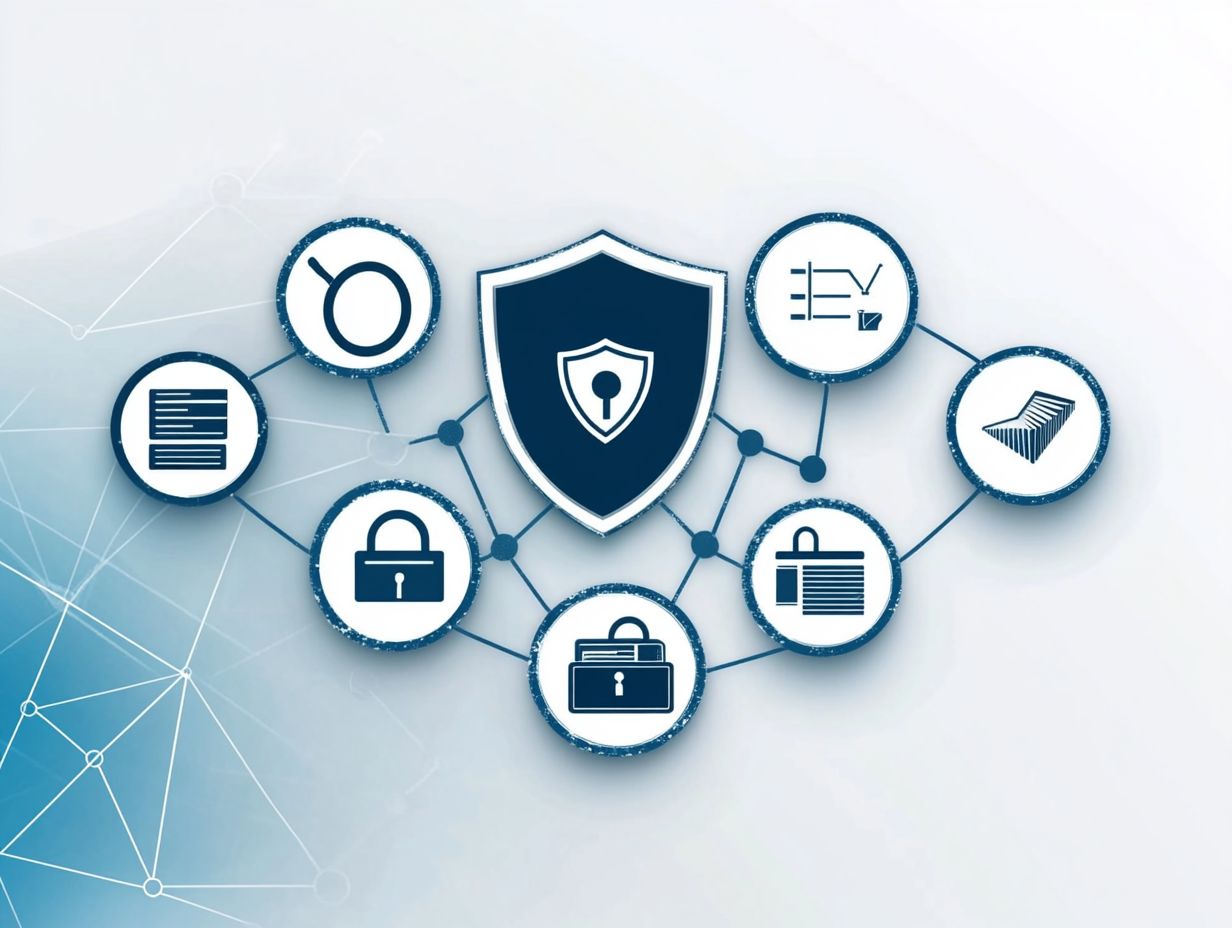
What are the top 5 features every managed security service should have?
Discover the top five features every managed security service must have!
Every managed security service should have these top five features: proactive threat monitoring, robust incident response, 24/7 customer support, regular security updates, and customizable solutions.
How does proactive threat monitoring benefit a managed security service?
Proactive threat monitoring allows managed security services to constantly check for potential threats and vulnerabilities in real time.
This helps prevent security breaches and reduces the chance of losing data or damaging systems.
Why is a strong response plan an important feature for a managed security service?
A strong response plan ensures that if a security breach occurs, the managed security service has a strategy to respond quickly and effectively.
This plan minimizes downtime and protects sensitive data.
What role does 24/7 customer support play in a managed security service?
24/7 customer support ensures that clients have access to technical assistance at any time, day or night.
This is crucial for addressing security concerns immediately, without disrupting business operations.
How do regular security updates and patches enhance a managed security service?
Regular security updates and patches keep systems and software up to date with the latest security protocols.
This reduces vulnerabilities and ensures clients are protected against new and emerging threats.
Why are customizable security solutions crucial for a managed security service?
Customizable security solutions let services tailor their offerings to meet individual client needs.
This ensures businesses receive the right level of protection. Don t wait for a breach! Ensure your data is secure with proactive monitoring.





